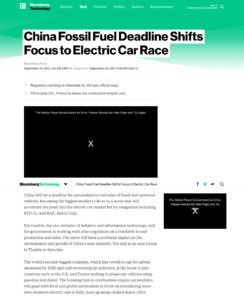 OEF REVIEW:The first European fuel cell of megawatt size is now operating in Germany. Contrary to conventional power plants, this energy solution delivers heat and electricity virtually absent of pollutants. It will provide clean energy for the production processes of materials specialist FRIATEC. It has a capacity of 1.4 megawatts.In terms of technology and environmental protection, fuel cells represent a promising alternative to conventional combined heat and power plants. They generate power in a non-combustion process which is virtually absent of pollutants. By using this fuel cell, FRIATEC will be able to reduce its CO2 emissions by approximately 3,000 tons per year. Karsten Wildberger, a member of the E.ON SE Board of Directors, adds: “Fuel cells are one of the key technologies for the clean energy world of tomorrow.”
OEF REVIEW:The first European fuel cell of megawatt size is now operating in Germany. Contrary to conventional power plants, this energy solution delivers heat and electricity virtually absent of pollutants. It will provide clean energy for the production processes of materials specialist FRIATEC. It has a capacity of 1.4 megawatts.In terms of technology and environmental protection, fuel cells represent a promising alternative to conventional combined heat and power plants. They generate power in a non-combustion process which is virtually absent of pollutants. By using this fuel cell, FRIATEC will be able to reduce its CO2 emissions by approximately 3,000 tons per year. Karsten Wildberger, a member of the E.ON SE Board of Directors, adds: “Fuel cells are one of the key technologies for the clean energy world of tomorrow.”
 China will put an end to the sale of fossil-fuel-powered vehicles – gasoline and diesel – becoming the biggest market to do so in a move that will accelerate the push into the electric car market led by companies including the Chinese BYD Co. and BAIC Motor Corp.
China will put an end to the sale of fossil-fuel-powered vehicles – gasoline and diesel – becoming the biggest market to do so in a move that will accelerate the push into the electric car market led by companies including the Chinese BYD Co. and BAIC Motor Corp. 
